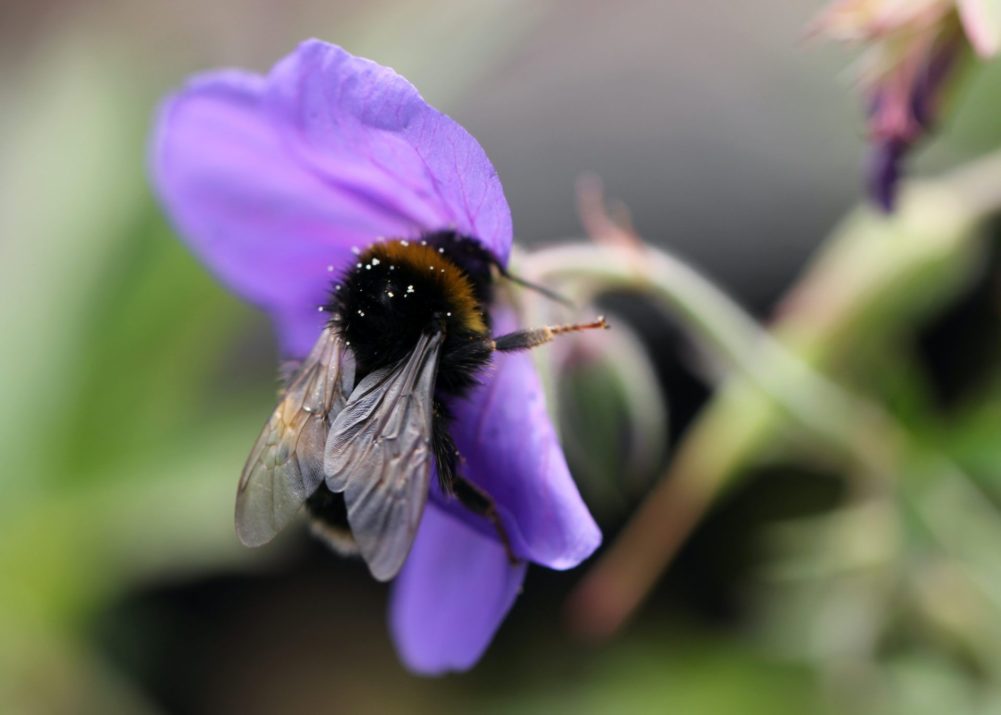Major seed and ag chemicals provider Syngenta is adding another initiative to the ongoing list of corporate sustainability commitments sweeping big food and big agribusiness after the results of a farmer survey revealed deep concerns about the impact of climate change.
The announcement also happens to come on the heels of 2020’s Pollinator Week.
Through The Good Growth Plan, Syngenta is pledging to invest $2 billion into sustainable agriculture by 2025 and to deliver two new technological breakthroughs to market each year, according to a company press release. The plan is a refresh from the original Good Growth Plan launched in 2013, which included targets like bringing over 14 million hectares of farmland back from the brink of degradation and enhancing biodiversity on over 8 million hectares. Syngenta claims that it has met or exceeded all of the targets from the 2013 Good Growth Plan.
“When we speak to farmers, we see they are the first to be harmed by climate change and biodiversity loss. Now the Covid restrictions could also have long-lasting effects on the food and agriculture sector,” said Alexandra Brand, chief sustainability officer at Syngenta Group said in the statement. “That’s why the significant levels of investment in innovation that you see in the new Good Growth Plan are needed to fight climate change and provide for a food system working in harmony with nature.”
Farmer survey reveals climate concerns
Syngenta commissioned a study with Ipsos MORI to assess large-scale farmers’ attitudes across the US, France, China, Brazil, India, and throughout Africa. According to its conclusions, 72% of survey respondents are worried about the impact that climate change will have on crop yields, animal health, and their ability to do business over the next five years. Fifty-nine percent believed reducing greenhouse gas emissions would make their farms more financially stable or competitive.
A separate survey of European farmers found 46% said their businesses had been significantly impacted by the coronavirus pandemic. However, 53% said climate change was still the immediate priority and 63% agreed climate change would have a greater impact on their business than Covid-19 over the next five years.
The specific commitments in the new plan comprise four areas: Accelerate innovation for farmers and nature, strive for carbon-neutral agriculture, help people stay safe and healthy, and partnering for impact. The Good Growth Plan also includes a commitment to reduce the carbon intensity of Syngenta’s operations by 50% by 2030 in line with the Paris Agreement on climate change. The target was validated by the Science Based Targets initiative.
Syngenta is already taking steps to put the fourth pillar of its plan into action. It also announced a partnership with the Solidaridad Network, an international development organization. The goal of the partnership is to implement sustainable solutions at scale to empower farming communities to achieve food security in developing regions. One of the projects is focused on helping smallholder coffee farmers in Colombia to increase incomes by 25% implementing new ways to fight the coffee borer beetle.
The company had already entered into a partnership with The Nature Conservancy in October 2019 aiming to regenerate one million hectares of degraded farmland over the next five years in Brazil.
Major competitor Bayer seems to be taking a different tact. Bayer held a Crop Science R&D Pipeline Showcase in February 2020 that highlighted the ag giant’s current portfolio of technology and revealed that a new herbicide is coming down the pipeline. The chemical is still in R&D and Bayer could not reveal many details about the new addition but stated that it will make its commercial debut in 2030, and will be able to battle glyphosate-resistant weeds. The new molecule is part of Bayer’s 10-year effort to discover new ways to battle weeds that are now resistant to glyphosate, which has cost the company $5.6 billion.
Advancing AgriFoodTech
The press release lacked details about Syngenta’s commitment to advance two “technology breakthroughs” each year. With a new managing director taking the helm of Syngenta Ventures in 2018, the outfit has been actively investing in a variety of agrifood technologies. The company seems to be focusing on technologies tied to reducing farmers’ dependence on chemical inputs. In March 2020, it backed WeedOUT, which is aiming to commercialize the first species-specific biological herbicide. In May, it invested in a $7 million seed round for Israeli autonomous chemical reduction tech Greeneye. And in 2018, it invested in a $2.9 million seed round for Danish pheromone-based pest control startup BioPhero.
Some of its other recent investments include South American agribusiness marketplace Agrofy, the acquisition of satellite data analytics startup FarmShots, and the acquisition of Brazilian farm management software startup Strider.
Whether Syngenta will advance two technologies a year through startup investment or inhouse R&D remains to be seen.
In other Syngenta news, the company recently relaunched and rebranded following its merger with the agricultural businesses of Chinese chemicals giant Sinochem, in preparation for an expected IPO in China. The new entity, named Syngenta Group, also incorporates Israeli crop protection company Adama. Chinese state-owned enterprise (SOE) ChemChina owns both Adama and Syngenta, and is reportedly undergoing a merger with fellow SOE Sinochem.





